
Some foods can last for years before spoiling, and others may only make it a few days. It’s important to know the distinction, as not every meal or ingredient has signs of spoilage like odors or mold, even when they’re no longer safe to eat.
Eating spoiled and improperly stored foods can lead to symptoms such as upset stomach, vomiting and diarrhea, usually starting with hours or several days after eating the food. Germs or other harmful things in the food or beverage can lead to diseases such as salmonella or listeria.
In rare cases, food poisoning from improper canning or damaged cans will cause botulism, a disease that can be deadly even if a minuscule amount of botulinum toxin is ingested.
Be cautious not just for the sake of your health, but also that of your wallet. Avoid buying items on this list in bulk unless you know you’re able to use it all in time. This can minimize your food waste and stop you from overspending on products you won’t be able to eat.
The following foods are among those that spoil quicker than you might think, so be ready to clean out your pantry.
1. Olive oil
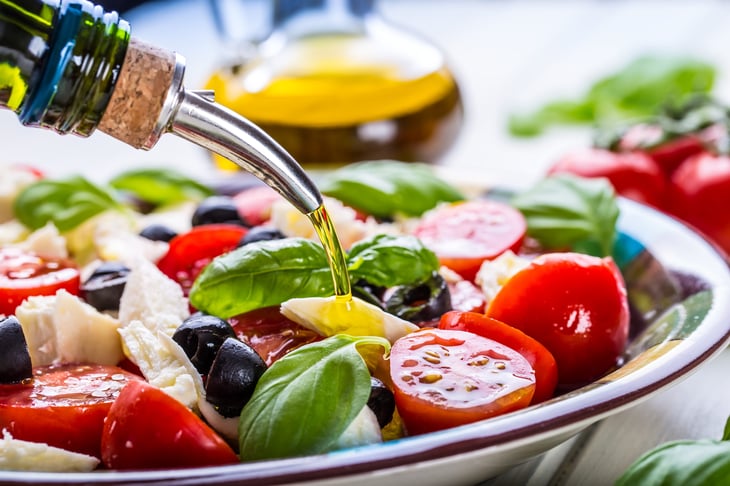
Olive oil can last more than a year if unopened, about 18 to 24 months. Once the bottle has been opened, though, it’s good for only three to six months.
Your olive oil is past its prime if:
- The harvest date on the label was more than 18 to 24 months ago.
- It loses its aroma or smells like wax, plastic or crayons.
- It has a greasier texture.
- It tastes likes spoiled nuts or old peanut butter.
- It appears cloudy.
The risk of your olive oil going rancid is higher if it’s stored in sunlight or near heat. It’s better to keep it in a dark bottle and stored away somewhere dark and cool. But don’t keep it in the fridge. Doing that will degrade the quality.
2. Brown rice
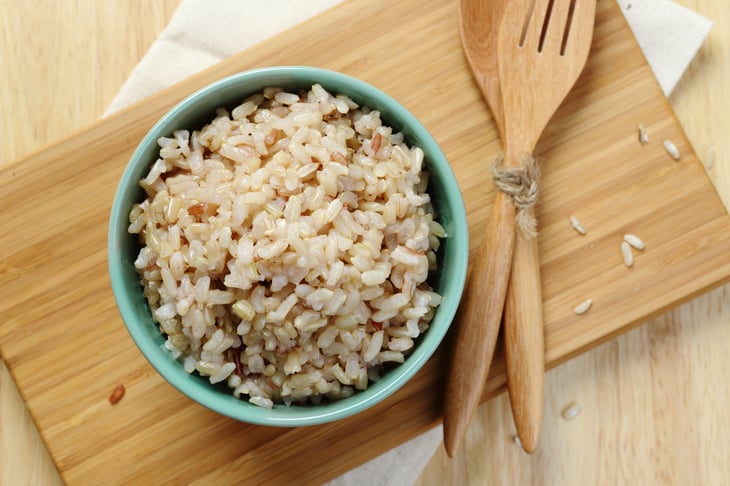
Dry white rice can last for 25 to 30 years if stored properly, as we detail in “15 Types of Groceries That Can Keep for Years.” But brown rice is a different story.
Brown rice lasts only three to six months. To tell if your rice has expired, check boxes or bags for holes, bugs, dampness or water since that can lead to mold. There are a few more signs of brown rice spoilage, including discoloration, an abnormal smell or an oily texture.
Storing dry brown rice in the fridge can improve its shelf life. If you’ve already opened the bag, consider transferring the rice to an air-tight container to limit any risk of bugs or moisture.
3. Ground spices
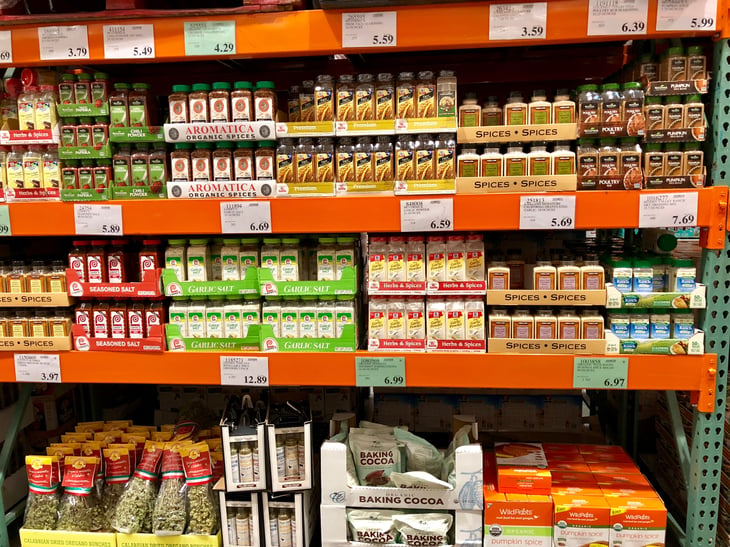
It can be tempting to buy that large container of ground spice — the pricing seems like a much better deal than the smaller portions. But if you don’t plan on using that bulk container up anytime soon, then don’t bother. That great deal may actually be a waste of money.
Ground spices don’t usually last more than six months. Overdue spices may not hurt you. They lose their flavor though. Your favorite recipes just won’t turn out the same when you’re using old spices.
To check if your ground spices are still good, just give them a whiff. If they don’t have a scent anymore then it’s probably time to purchase a new bottle.
Whole spices, however, can last up to five years. So if you want to buy pepper, for example, in bulk — reach for whole peppercorns instead.
4. Fresh juice

Making fresh juice at home can be cost-effective and healthy. Beware not to hold onto it for too long, though, as it’ll go bad sooner than store-bought juice. You should drink your homemade juice soon after it’s prepared because it can become a breeding ground for potentially harmful bacteria.
Most store-bought juice is pasteurized to limit bacterial growth, the U.S. Food and Drug Administration notes, and you likely aren’t giving your fresh juice that kind of treatment.
5. Homemade sauces
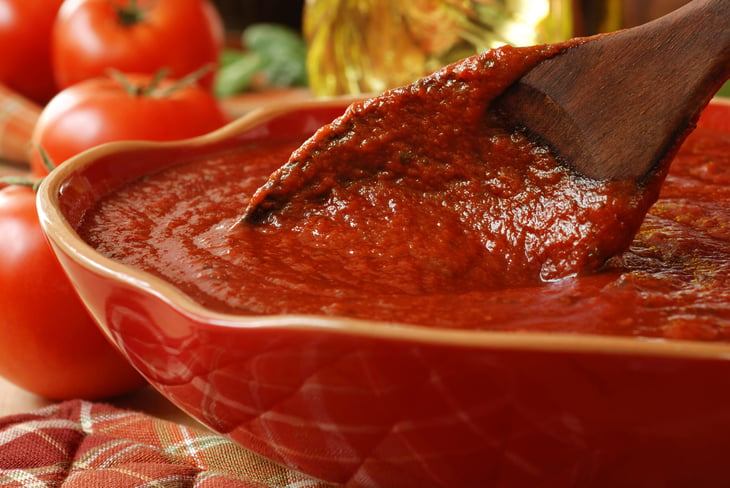
Picking up a jar of pasta sauce from the store is easy, and making it at home can be too. But if you’re making tomato sauce at home, you need to know that it won’t last quite as long. Store-bought jarred tomato sauce can last five to seven days in the fridge after opening. Homemade tomato sauce typically only lasts three to five days after opening, though.
Tomato sauce that’s well past due will appear moldy or have a bad smell or an off-taste. However, even sauces that look perfectly fine can pose a health risk if they’re too old. So better to be safe than sorry.
Many other homemade sauces will also spoil faster than their store-bought counterparts. So always do your research.
6. Hard-boiled eggs

Uncooked eggs can sit in your fridge for three to five weeks, even if the carton’s “Sell-by” date has passed, the U.S. Department of Agriculture says. Hard-boiled eggs don’t have that same longevity and can last in the fridge for up to a week. You shouldn’t leave your cooked eggs out at room temperature for more than two hours either.
To check if a hard-boiled egg is still good, see if the shell has a chalky or slimy appearance. Cooked eggs will also smell bad if they’re spoiled. You may have to peel the egg before you can tell. You don’t necessarily have to worry about green-gray yolks, though. That coloring might look alarming, but it can often be a result of cooking time.
7. Nuts and seeds
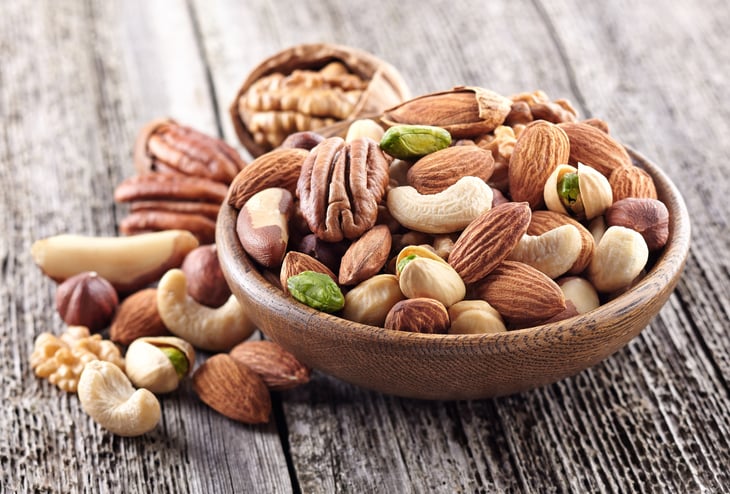
Nuts and seeds are often stored in pantries. That’s not the ideal spot, though. The best spot for keeping nuts fresh is in the freezer or fridge. Those healthy oils that nuts and seeds contain are the culprit behind how quickly they can go bad at room temperature. They’re prone to oxidization, which leads to these products going rancid. Nuts and seeds are also susceptible to growing mold and yeast.
When kept at room temperature, nuts can last one and three months, but those stored in the fridge can last up to six months. Nuts stored in the freezer can last even longer — up to a year. Spoiled nuts will often smell sour, moldy, paint-like or plastic-like.
8. Leftovers

Those leftovers from your last night out might sound pretty good, but you need to be cautious if you don’t want to risk food poisoning. Refrigerated leftovers can last three to four days, according to the Mayo Clinic. After that, bacteria could begin to grow on it, and the bacteria that cause foodborne illnesses can often be undetectable, without any presence of bad smells or mold.
So if you’re unsure how long your leftover food has been sitting in the fridge, or if you’re on the fence about whether or not it’s safe, it’s probably best to throw it away or compost it.
9. Cooked quinoa

Uncooked quinoa has a longer shelf life than cooked quinoa, though it should be treated similarly to nuts and seeds, as it contains the same types of beneficial oils that tend to go rancid faster at room temperature.
But cooked quinoa lasts only three to five days in the fridge or up to two months in the freezer, according to Whole Foods Market.
10. Broccoli
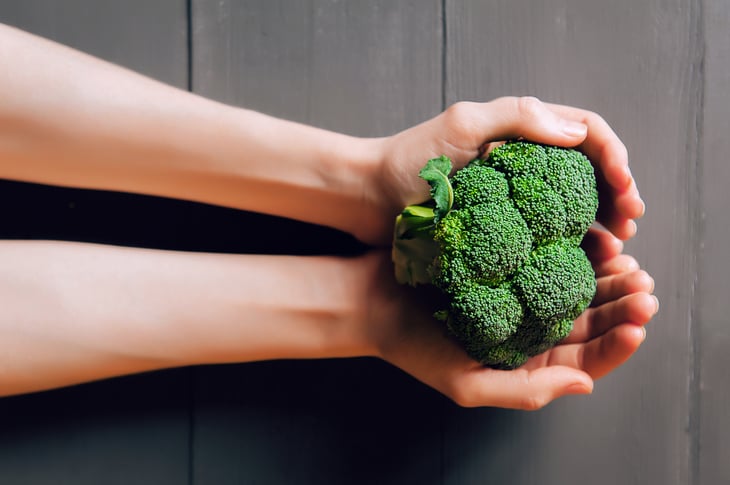
Although broccoli may look sturdy, uncooked it can last just three to five days in the fridge, the Food Network reports. Cooked broccoli stored in the fridge can last around four days.
11. Dented canned foods
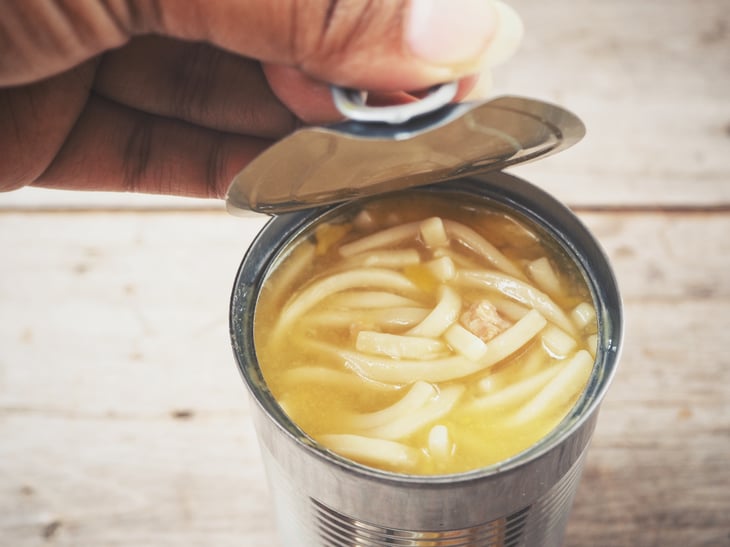
Canned foods usually have a long shelf life: 12 to 18 months in the case of acidic foods like tomatoes and fruit, and two to five years in the case of low-acid foods like most vegetables.
But dented cans put you at risk for botulism. Cans that appear rusty or bloated shouldn’t be consumed, either. A can that spurts liquid out when opened or is leaking could pose a botulism risk as well, and even a small amount of the botulinum toxin, if ingested, can be deadly. The U.S. Department of Agriculture urges consumers to never taste or use canned goods with these warning signs.




Add a Comment
Our Policy: We welcome relevant and respectful comments in order to foster healthy and informative discussions. All other comments may be removed. Comments with links are automatically held for moderation.